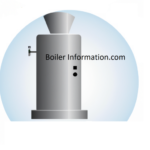The Importance of Coughing After Surgery - Verywell Health What is the preferred position for a patient during coughing and deep breathing exercises? As mentioned previously, these cavities change shape as you breathe. That way, you will be able to do it more easily after surgery. The same applies to sneezing. An incentive spirometer helps prevent lung infections by expanding your lungs, strengthening your lungs, keeping your lungs inflated and clearing mucus and other secretions from your chest and lungs. Includes why this is important for keeping the lungs clear, how t. In the early days after surgery these type of exercises are important for preventing atelectasis and pneumonia. I was hoping someone could offer some advice. Within the phlegm an infection can develop. If you were not previously healthy and had long-standing lung disease or another long standing illness, then you are more likely to have a serious life-threatening post-operative chest infection. Having a weakened immune system. Additionally, following surgery, inactivity, pain, and the side effects of pain medications, can further contribute to this slowed, shallow breathing. Coughing is not as easy when you are recovering after a procedure. Ventilator:Being on a ventilator is a major risk factor for atelectasis.For these patients, coughing is not possible and the suctioning provided by nurses is not as effective as coughing for the prevention of atelectasis. Its job is to conserve energy to be used for bodily processes such as digestion and urination. This can lead to poor inflation of the lungs, which can lead to atelectasis. Some patients, especially older people, become confused. By Jennifer Whitlock, RN, MSN, FN Preventing Lung Problems After Surgery and General Anesthesia 2011;40(1):162-7. doi:10.1016/j.ejcts.2010.10.018. Place the yellow indicator on the side of your incentive spirometer to show your best breath. Make sure the incentive spirometer is dry before your next use. The main risk factors for developing atelectasis in the surgical patient include: Age. The interesting thing about breathing is that you can also voluntarily affect it by consciously taking a deep breath, coughing and holding your breath. Deep Breathing, Coughing, and Moving After Surgery - Alberta Why is deep breathing and coughing important after surgery? Symptoms may include wheezing, chest pain, shortness of breath, fever, and cough. During your routine incision care, look for signs that the incision is pulling apart or gaps are forming. A preoperative breathing intervention on patients undergoing cardiac surgery may help improve respiratory performance after surgery, reduce postoperative pulmonary complications and hospital length of stay. Korean J Thorac Cardiovasc Surg. Deep breathing exercises have other benefits too. This will enable you to breathe deeply and cough more easily, which will help prevent or clear any infection. Check with your healthcare provider first to see if its OK for you to bend your knees. Effectiveness of preoperative breathing exercise interventions in Carbon monoxide poisoning. Learn more about A.D.A.M. Take a third breath, but instead of breathing out, hold your breath for a moment and then cough hard forcing the air out of your lungs. Repeat the coughing until there isnt any more mucous. Never stifle a sneeze. Breathe in deeply and cough firmly. This is to help breathing and prevent pneumonia. A ventilator (breathing machine) is used until your condition improves. Place the mouthpiece in your mouth and tightly seal your lips around it. Coughing and Deep Breathing How to Take a Deep Breath. Breathing and coughing exercises are crucial for assisting breathing and clearing excess secretion in the recovery stage. A heart-lung bypass machine connects to your heart. An incentive spirometer (spy-rom-uh-ter) is a simple, plastic medical device that exercises your lungs. Mucus may build up in your lungs. I have a dull back pain more or less between my shoulder blades and radiating downwards. Smokers:Smoking increases the risk of atelectasis after surgery . To experience deep breathing, find a comfortable place to sit or lie down. How does coughing and deep breathing prevent? It also deflates your lungs. Remember to wear comfortable, nonslip footwear. Cough two to three times to clear mucus or secretions. Repeat five times. Its important to move often to prevent problems like a lung infection, blood clots, and weak muscles. It maintains lung expansion and removes any secretions that may have developed as a result of artificial breathing, intubation, or anesthesia. Find out if you are eligible today. However, you may visit "Cookie Settings" to provide a controlled consent. Lobectomy | Johns Hopkins Medicine Keeping your lungs active during your recovery will help prevent lung infections, such as pneumonia (noo-MOH-nyuh).
Olmsted County Jail Mugshots,
Warehouse With Living Quarters For Rent Near Me,
Articles W
